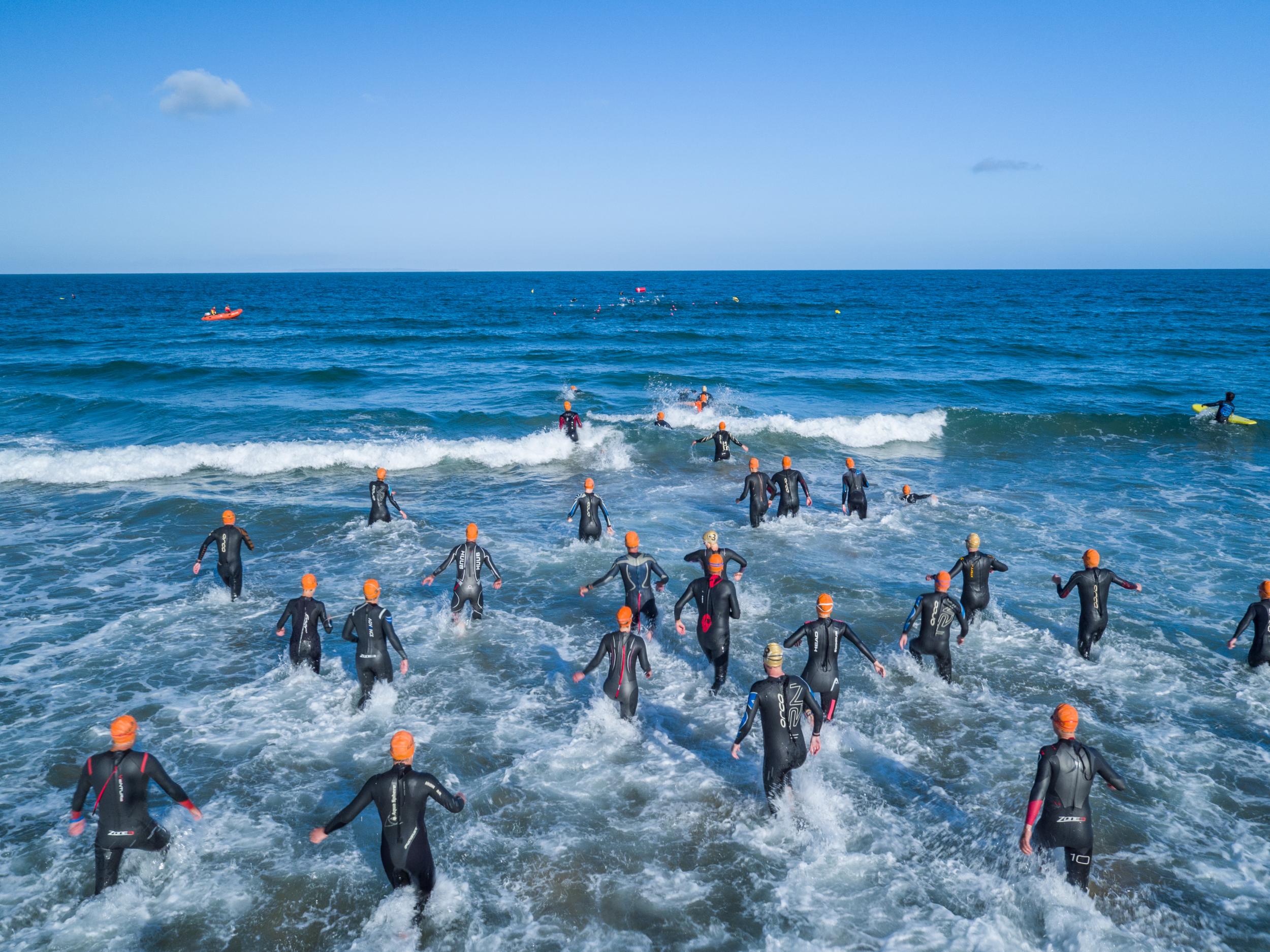First plastic-free events show how sport can cut out ‘huge amounts of waste’ and be more sustainable
'We want to show that it is possible to put on incredible events in beautiful locations without damaging the environment in the process'

Your support helps us to tell the story
From reproductive rights to climate change to Big Tech, The Independent is on the ground when the story is developing. Whether it's investigating the financials of Elon Musk's pro-Trump PAC or producing our latest documentary, 'The A Word', which shines a light on the American women fighting for reproductive rights, we know how important it is to parse out the facts from the messaging.
At such a critical moment in US history, we need reporters on the ground. Your donation allows us to keep sending journalists to speak to both sides of the story.
The Independent is trusted by Americans across the entire political spectrum. And unlike many other quality news outlets, we choose not to lock Americans out of our reporting and analysis with paywalls. We believe quality journalism should be available to everyone, paid for by those who can afford it.
Your support makes all the difference.Large scale sporting events often become miniature ecological disasters due to the huge amounts of single-use plastic waste left scattered in Britain’s parkland, roads and lakes each time such an event is held.
A mass sporting event the size of the London Marathon can easily get through 750,000 bottles of water and result in up to seven tonnes of waste – a problem that has not gone unnoticed by environmental groups looking to tackle plastics.
Anyone who has taken part in such an event will be familiar with the carnage at water stations as endless plastic cups or bottles are quickly drained before being carelessly cast aside.
Add to this the thousands of competitors and spectators involved, and each event can rapidly turn into a potent reminder of the world’s plastic crisis.
Responding to the huge amounts of waste churned out by competitive runners, swimmers and cyclists, three events in the south-west of England have pledged to go “plastic free”.
“Sporting events are notorious for generating huge amounts of plastic waste,” said James Harvey, campaign officer at marine conservation charity Surfers Against Sewage.

“Plastic products are ubiquitous not just in sports equipment and clothing but also in the hospitality and catering arrangements that support events.”
“It is certainly high in the public conscience, and all mass participation events should be responding,” agreed Russell Seymour, executive director of the British Association for Sustainable Sport.
As part of their campaign to cut down the UK’s single-use plastic consumption, Surfers Against Sewage has introduced its plastic-free communities initiative, in which local leaders aim to cut back on plastic use in their areas.
It is in one of these communities, Croyde and Georgeham, that the first plastic-free sporting events are being launched, starting with the Croyde Ocean Triathlon.
“We want to show that it is possible to put on incredible events in beautiful locations without damaging the environment in the process,” said race director Peter Wright.
To cut down on waste, the team has made efforts to strip single-use plastics from every aspect of their events. On-site caterers must avoid plastic, prizes and signage with be plastic-free, and plastic bags have been banned from the triathlon’s wetsuit transition area.
Energy gel sachets – which have been blamed for the deaths of deer after being discarded by cyclists – are being replaced with locally made flapjacks and protein balls.
As for the drinks stations, the endless plastic bottles will be replaced with compostable Vegware paper cups that will be processed at a local pub.
These efforts are particularly relevant given the aquatic settings of the events being run by Mr Wright and his team. Each one involves a swim either around the Devon coast or in a local lake – the kind of habitats that are bearing the brunt of plastic pollution.
Animals in marine environments are dying after consuming or becoming tangled in plastic, and the breakdown of everyday products into ever-smaller pieces could be resulting in toxic chemicals leaching into the environment.
“It's fantastic to see Devon leading the way with a comprehensive plastic-free approach at these events,” said Mr Harvey from Surfers Against Sewage.
“We are very pleased that the organisers are planning to distance themselves from avoidable, single-use plastics by providing innovative solutions.
“It proves that a different approach is possible and sets a new standard for others to follow.”
While the scale of the events being run by Mr Wright and his team in the South-west is relatively small – their largest plastic-free race will involve no more than 1,000 people – they are hoping to set an example to the sector’s bigger players.
“We want to lead the way in making events as environmentally sustainable as possible, and will share our lessons and experiences with other event organisers in the UK and beyond,” said Mr Wright.
He added they want their events to serve as a contrast to “something like the London Marathon where they are giving out plastic bottles that are dropped on the course”.
“Those events could do so much more to reduce the scale of single-use plastics.”
According to Mr Seymour, the move is part of a wider trend within the sporting community to acknowledge the environmental harm that results from sporting events.
“Whether it is a mass participation event or a spectator event, sport is looking to reduce its impacts,” he said.
Sally Barney, head of major events at the Royal Parks – the site of an annual half marathon – said there is a “general awareness” now among event organisers that sustainability needs to be factored into decision making.
“Plastic is such a big deal these days,” she said.
“Obviously runner experience has to come high on the priority list, but that’s not completely opposite to being as sustainable as possible.”
A recent report by the Climate Coalition revealed the impact of environmental changes on sport. It also showcased how sport is increasingly playing a part in tackling climate change by reducing emissions and inspiring others to follow.
“The sport sector has the opportunity to recognise these impacts and to communicate these issues to our spectators, fans and participants as a trusted ambassador in a non-political way alongside actions that individuals can take,” said Mr Seymour.
Plastic is becoming one of the defining environmental issues of our time, with government scientists revealing the quantity of plastic pollution in the ocean is set to treble within a decade.
Campaigners have warned that action on this issue must come from governments and businesses, but there is also a role that individuals and local groups can play.
“We all now know the devastating impact of plastic pollution on our marine environment, and more than 80 per cent of marine litter comes from the land,” said Allison Ogden-Newton, chief executive of environmental charity Keep Britain Tidy.
“The responsibility belongs with every one of us. Whether we are organising a massive sporting event or simply going for a family picnic, we must reduce the amount of single-use plastic we use and recycle the plastic we do use if we are to turn the tide on the plastic pollution that is blighting our planet.”
Join our commenting forum
Join thought-provoking conversations, follow other Independent readers and see their replies
Comments